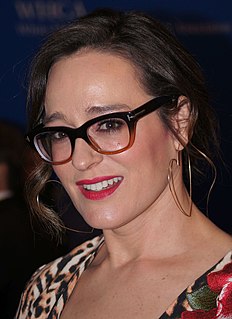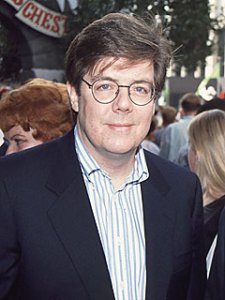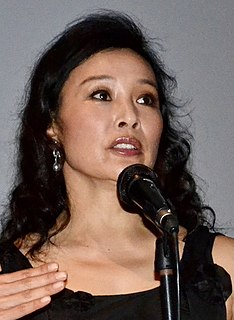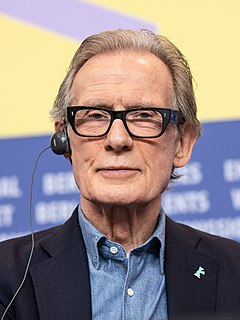A Quote by Northrop Frye
The twentieth century saw an amazing development of scholarship and criticism in the humanities, carried out by people who were more intelligent, better trained, had more languages, had a better sense of proportion, and were infinitely more accurate scholars and competent professional men than I. I had genius. No one else in the field known to me had quite that.
Related Quotes
For more than two generations, my family had never achieved their ambitions. Their talents were unappreciated and unused. They deserved better. They hadn't done anything wrong; they just had some bad breaks. Why was I succeeding? Why was I living my dreams? I wasn't more deserving than they were. I wasn't smarter or a better person. What was the difference between us that allowed me to attain so much in a short time? America. America was the difference. I had been born a citizen of the greatest nation in all of human history.
Both my parents were Democrats. My dad was definitely more of a fiscally conservative traditional Democrat. My mom was more of a feminist Camelot Democrat. They definitely had an idealistic view of life as it should be in the United States. And they had a sense that government had to have some hand in making people's lives better.
For instance, on the planet Earth, man had always assumed that he was more intelligent than dolphins because he had achieved so much—the wheel, New York, wars and so on—whilst all the dolphins had ever done was muck about in the water having a good time. But conversely, the dolphins had always believed that they were far more intelligent than man—for precisely the same reasons.
Wallace Stevens had more time to write as an insurance agent. He was a bond lawyer and I know that insurance company lawyers don't have to do nearly as much as we had to do. We were out more in the production area. I'm not condemning Stevens for having had a better job than I did, but that's one of the many places where I differ from him.
In the 20th century, we had a century where at the beginning of the century, most of the world was agricultural and industry was very primitive. At the end of that century, we had men in orbit, we had been to the moon, we had people with cell phones and colour televisions and the Internet and amazing medical technology of all kinds.
What is natural in me, is natural in many other men, I infer, and so I am not afraid to write that I never had loved Steerforth better than when the ties that bound me to him were broken. In the keen distress of the discovery of his unworthiness, I thought more of all that was brilliant in him, I softened more towards all that was good in him, I did more justice to the qualities that might have made him a man of a noble nature and a great name, than ever I had done in the height of my devotion to him.
My friend's granddad died of prostate cancer and it had a profound effect on me. So when I was presented with the opportunity to speak out, I had to take it. This is a life threatening issue for men; it happens every day. The more you know, the better your chances are of dealing with it if the worst were to happen.
My friend's granddad died of prostate cancer and it had a profound effect on me. So when I was presented with the opportunity to speak out, I had to take it. This is a life threatening issue for men, it happens every day. The more you know the better your chances are of dealing with it if the worst were to happen.
Historically and culturally the Mongol women were very strong, they contributed as much as the men to their society, their community. Other than upper body strength, I think they were equal to the men. To compensate for the lesser upper body strength they had to be smarter, they had to think more, they had to consider things more carefully.
I really like the "two is better than three" line. People ask me is this drama or comedy? I just think the more colors you have to a film the better. The more genres, the more people will like it. I like relating to the whole general speaking public. The script itself is 99 pages but the novel it is based on is 600. I had to leave a lot of stuff out of the script. I had a limitation of what I could present on the big screen.
People were actually 6 times more likely to buy a jar of jam if they had encountered 6 than if they encountered 24, so what we learned from this study was that while people were more attracted to having more options, that's what sort of got them in the door or got them to think about jam, when it came to choosing time they were actually less likely to make a choice if they had more to choose from than if they had fewer to choose from.
In America, we then made a commitment, particularly after World War II with the GI Bill, to massively expand our commitment to college education, and that meant we had more engineers and we had more scientists and that meant we had better technology, which meant that we were more productive and we could succeed in the global marketplace.



































